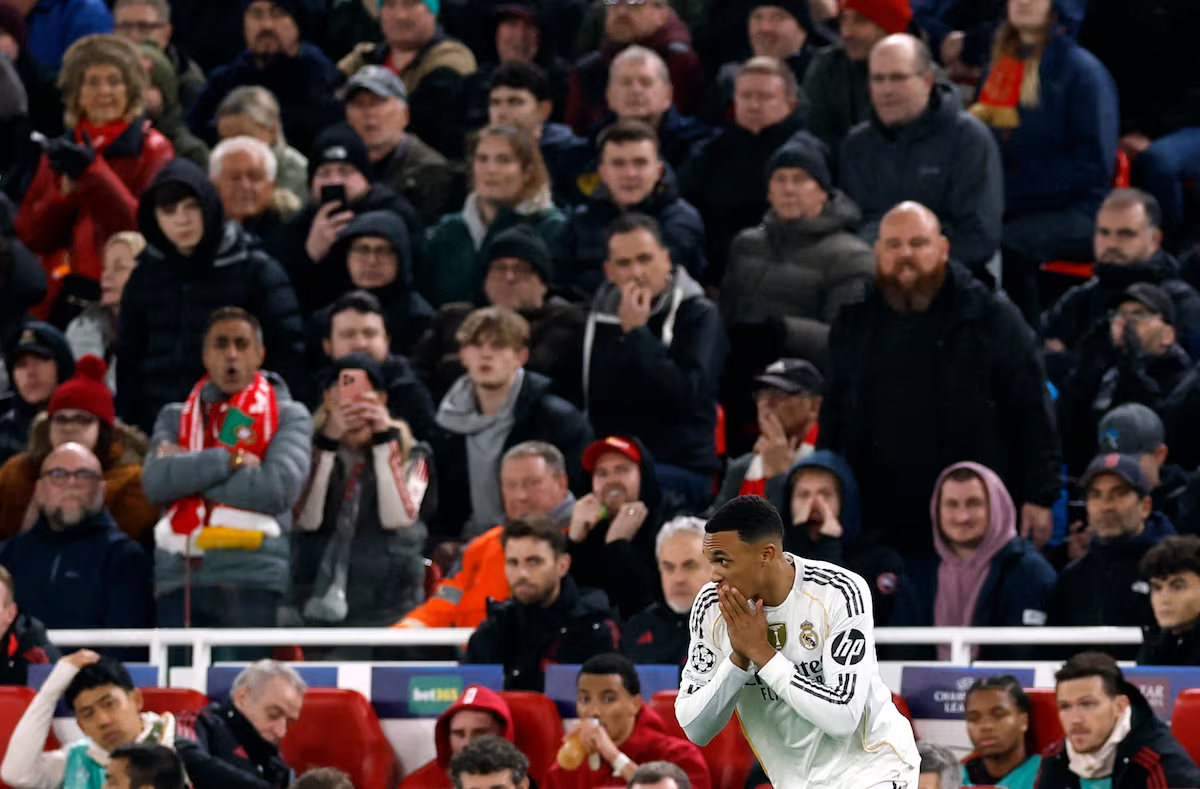
A dear friend of mine says that losing at Anfield Road always involves a double punishment: defeat on the green, with all the possible pain condensed into the final result, and the torture practiced from the stands in the form of an anthem, of a song. I admit disagreements on this matter. I don’t consider myself any monster and everyone is completely free to get emotional about what touches their heart, but I wouldn’t be comfortable without pointing out that You’ll Never Walk Alone seems to me to be the most persistent epidemic in all of world football, a mixture of religion and karaoke that Liverpool fans practice in every match as an Anglo-Saxon substitute for Cuban Santeria.
I could be moved with envy in such a black attitude, but no. We Galicians have A Rianxeira, which is not far behind in terms of pop iconography and popular fervor. And in both cases my reservations no longer focus so much on the song as on the cult, unable to assimilate such outpouring in commentators, music critics, rival fans and local fans, that chorus of deep and emotional voices that has the ability to transform Liverpool into Lourdes at least for a couple of minutes. What was once a hymn has transformed into a mystical experience – like eating at DiverXO or swimming with dolphins at Ningaloo Reef -, an act of faith that puts the great rites of any organized religion to shame: if they ever thought of charging entry just to listen to it, they would fill Anfield without needing to kick off.
There are those who enter the field on the right foot, those who recite the Our Father and those who hum You’ll Never Walk Alone to themselves. And I don’t know what worries me more: the blind faith of the act or the superstition of its staging. There is so much drama concentrated in a few verses that we no longer know whether they are receiving eleven footballers dressed in red or accompanying the widows of those who lost their lives in the war, the original spirit of a song transformed by football into the best example of a coercive weapon: beating them on their own pitch is almost like shouting at a mass.
Furthermore, no scientific study has been able to demonstrate why a song can help you win a football match. Does it activate the heroic hemisphere of the brain? Or does it increase the concentration of the winning gene in the blood? I don’t believe it, nor do I fully believe the promise contained in the central motto of the cheerful song: you will never walk alone… until you lose three games in a row and every missed pass is accompanied by a silence that turns your blood cold. As much as it tries to resist, Anfield is also starting to be a tourist attraction with its own soundtrack.
On Tuesday, as Real retreated to the locker room with the bandage of the “small details” on the wound of a bad match, I could only think about how much I miss the usual coldness of the Camp Nou or the Santiago Bernabéu: the sincere whistles that arise from the most authentic frustration, the impatient murmur of the old fan, his total absence of compassion for that twenty-year-old who defends the same shirt as you. It may be less poetic and will never move Spielberg, but it is more honest. Because it’s one thing to have a soul – or constantly boast about it – and another, very different thing, to turn every football match into a fokin musical.





